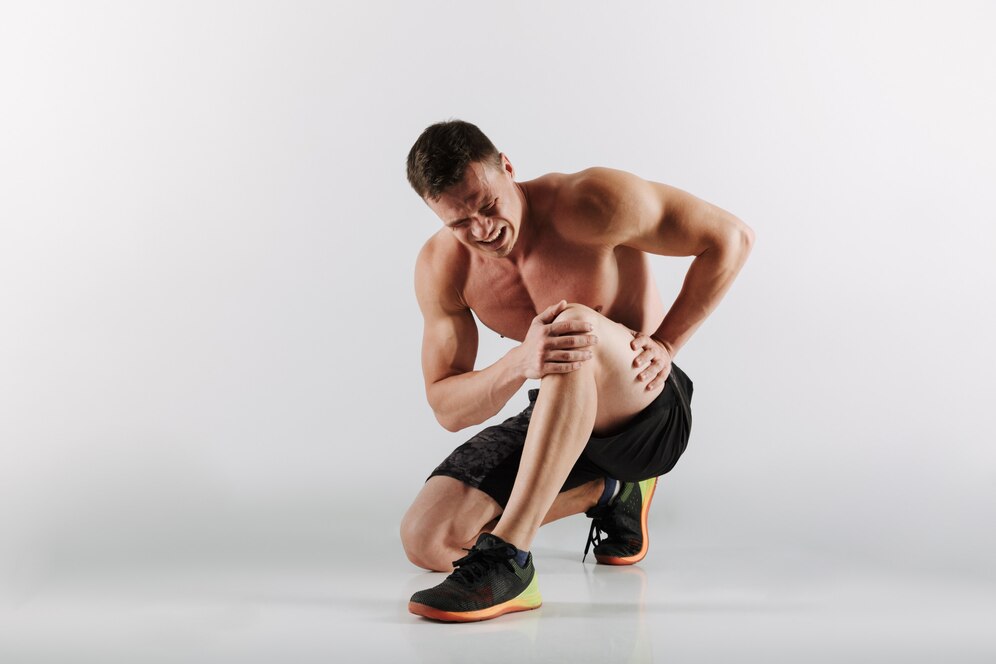Muscle Cramps

Muscle cramps are sudden, involuntary contractions of one or more muscles, causing discomfort or pain. These cramps can occur during physical activity, rest, or even sleep. In Ayurveda, muscle cramps are often linked to an imbalance in Vata dosha, which governs movement and communication in the body. An aggravation of Vata can lead to dryness and spasms in the muscles.
- Vata Imbalance: An excess of Vata, often due to cold, dry weather, irregular eating habits, or excessive physical exertion, can lead to muscle spasms.
- Dehydration: Inadequate hydration can result in electrolyte imbalances, contributing to muscle cramps.
- Nutrient Deficiencies: Lack of essential nutrients, such as magnesium, potassium, and calcium, can lead to cramping.
- Poor Circulation: Insufficient blood flow to muscles can trigger cramps during physical activity or prolonged sitting.
- Overexertion: Straining muscles during exercise or physical labor can lead to fatigue and cramping.
- Sedentary Lifestyle: Lack of physical activity can weaken muscles and make them more susceptible to cramps.
Ayurvedic treatment for muscle cramps focuses on balancing Vata dosha and promoting overall muscle health. Here are effective approaches:
Dietary Adjustments
- Hydration: Ensure adequate water intake to maintain electrolyte balance and prevent dehydration.
- Include Nutrient-Rich Foods: Foods rich in potassium (bananas, sweet potatoes), magnesium (spinach, nuts), and calcium (dairy products) can help prevent cramps.
- Warm, Nourishing Foods: Opt for warm, moist foods like soups and stews to balance Vata and promote muscle relaxation.
Herbal Remedies
- Ashwagandha (Withania somnifera): Known for its adaptogenic properties, Ashwagandha can help reduce stress and tension in the muscles.
- Ginger (Zingiber officinale): Ginger tea can alleviate muscle discomfort and improve circulation, reducing the likelihood of cramps.
Lifestyle Modifications
- Regular Exercise: Engage in regular physical activity to strengthen muscles and improve circulation.
- Stretching: Incorporate gentle stretching exercises into your routine to enhance flexibility and prevent cramps.
- Warm Baths: Soaking in warm water with Epsom salt can relax muscles and alleviate cramping.
Panchakarma Treatments
- Abhyanga (Oil Massage): Regular oil massages with warm sesame or mustard oil can soothe muscles, improve circulation, and balance Vata.
- Swedana (Herbal Steam Therapy): This treatment helps open up channels in the body, allowing for improved circulation and relief from muscle tension.
Conclusion
Muscle cramps, while often temporary, can be a sign of underlying imbalances in the body. Through Ayurvedic dietary adjustments, herbal remedies, and lifestyle changes, individuals can effectively manage and prevent muscle cramps by restoring balance to the Vata dosha. For persistent or severe cramps, consulting an Ayurvedic practitioner for personalized treatment is advisable.
Give your Feedback and Reviews
Rating Breakdown
No feedback available.